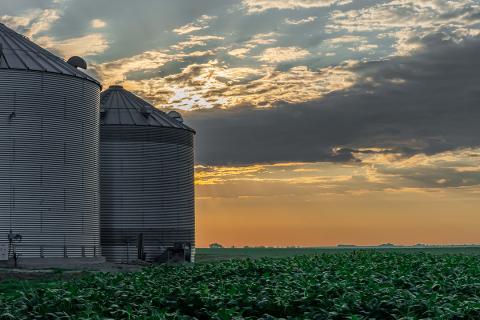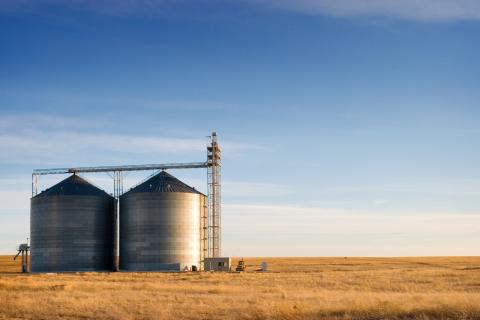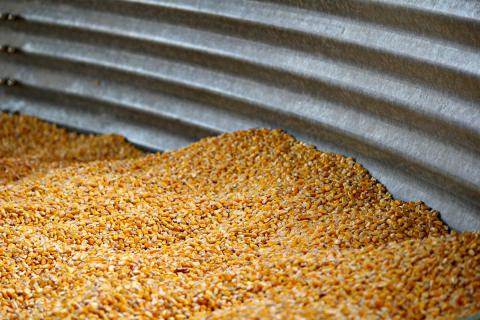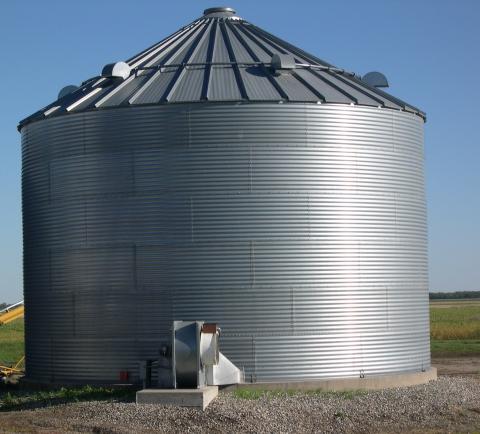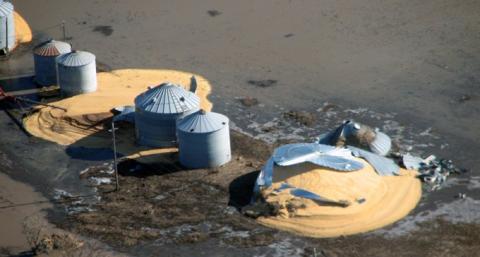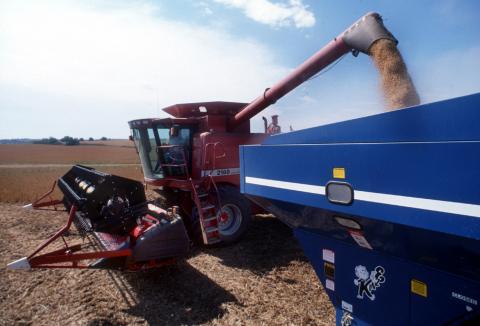
Wittich Aims to Strengthen Grain Bins Against Earthquakes, Wind Storms
May 23, 2024
UNL Department of Civil Engineering Assistant Professor Christine Wittich is filling a gap in research on improving the vulnerabilities of steel grain bins, which could one day lead to different construction standards.
Grain Safety Takes Center Stage: Nebraska Corn Board, Nebraska Soybean Board Promote Stand Up 4 Grain Safety Week
March 25, 2024
The Stand Up 4 Grain Safety Week initiative strives to raise awareness among farmers and ag workers about the importance of safety when working in and around grain bins, and overall safety practices on the farm.
This Week on N Field: Ear Rots and Storage Considerations
October 13, 2023
Nebraska Extension Educator Amy Timmerman shares tips on scouting for ear rots during corn harvest and avoiding mold development in bins.
Considerations When Conditioning Too-dry Soybeans
October 27, 2022
Insights on the process of conditioning low-moisture soybeans while avoiding damage to grain bins, with respect to cost-effectiveness.
Cooling Low-moisture Corn in Bins
October 25, 2022
With a higher prevalence of low-moisture corn this harvest season due to drought, Nebraska Extension shares recommendations on how to avoid additional moisture loss while cooling the grain.
Proper Spring Grain Drying and Storage Critical
April 7, 2020
As outdoor temperatures increase, stored grain requires attention to prevent losses, says Ken Hellevang, North Dakota State University Extension agricultural engineer and grain drying expert.
FSA Announces Disaster Relief Payments for Loss of On-Farm Stored Commodities in Nebraska
November 5, 2019
This week the USDA Farm Service Agency announced that payments now are available to eligible producers in Nebraska who lost stored commodities due to natural disaster in 2018 or 2019.
Soybean Drying, Storage Could Be Challenging
October 16, 2019
A challenging soybean harvest this fall is raising many storage and drying issues, including the potential for increased shatter losses, moisture variation, and storage losses. See these recommended drying times and temperatures for safer storage.
